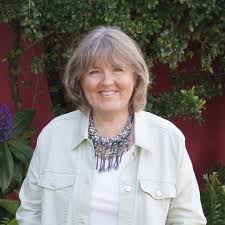By Isabelle Wilson-
During a recent commencement speech at the University of Pennsylvania, oncologist Siddhartha Mukherjee highlighted a common theme among the dying: the desire to have expressed more love and forgiveness.
Mukherjee emphasized that many use their final moments to show appreciation for their loved ones, a poignant reminder of the importance of emotional connections.
Researchers have long explored the wishes and regrets of people in their dying moments in order to inspire those alive to make the most of life and minimise their regrets.
But Bronnie Ware,(pictured) a former palliative care nurse and author of “The Top Five Regrets of the Dying,” who spent eight years caring for terminally ill patients is one of the most well known for documenting her experiences with patients and highlighting some of the most important lessons she has gathered from them over the years .
She has shared her experiences a few times to CNBC news and a number of news outlets over the years, with the hope of helping people live their lives to the fullest whilst alive.
As people approach the end of their lives, many reflect on the things they wish they had done differently. This reflection often brings a profound sense of regret for missed opportunities, unexpressed feelings, and unfulfilled dreams.
Journalists from CNBC news have over the years paid particular interest in this area, appreciating the valuable insights those on their deathbeds offer to the living, urging us to prioritize what truly matters in life. They feature the lessons gathered from the veteran medic to highlight the importance of making the most of life everyday.
Ware’s experiences revealed that many people regret not doing enough for themselves. Ware’s book details the most common regrets expressed by the dying, providing a roadmap for those seeking to avoid similar remorse.
What most people regret according to Ware, is not living a life true to oneself. Many people realize too late that they have sacrificed their dreams and aspirations to meet the expectations of others.
Whether it’s choosing a career path to please parents or forgoing travel to stay close to loved ones, these decisions often lead to a lifetime of unfulfilled dreams and dissatisfaction. Ware advises that individuals should prioritize their interests and happiness to avoid such regrets.
Overworking is another prevalent regret. A Harris Poll of 1,170 American workers found that 78% are leaving vacation time unused and overextending themselves professionally. This prioritization of work over personal life can lead to strained relationships and poor mental health.
Bill Gates, Microsoft co-founder, shared his own experience during a commencement speech at Northern Arizona University. Gates admitted that he once dismissed the importance of vacations and weekends, a mindset he only changed after becoming a father. He urged graduates to take breaks, nurture relationships, and balance work with life.
Ware’s observations underscore the significance of maintaining strong personal relationships, staying true to oneself, and finding joy in life. Many people don’t realize until it is too late that happiness is a choice. They become trapped in familiar patterns, mistaking comfort for contentment, while longing for laughter and spontaneity.
These regrets are often rooted in the disparity between how people feel at the end of their lives and how they felt when making those life decisions. In the moment, societal pressures, career ambitions, and immediate responsibilities can overshadow long-term happiness and personal fulfilment.
Facing mortality brings clarity, revealing the true value of love, friendship, and personal joy.
Ware’s concluding advice is a powerful call to action: “Life is a choice. It is YOUR life. Choose consciously, choose wisely, choose honestly. Choose happiness.” By learning from the regrets of those who are dying, we can make more informed choices that lead to a fulfilling and joyful life.




